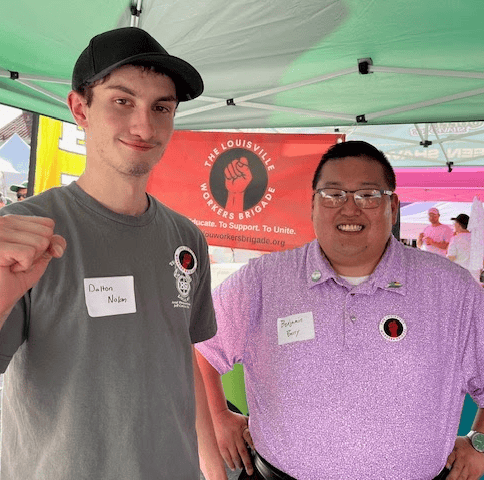Social Anxiety & the Organizer
Dalton Nolan
11/17/2024
As seen in our daily struggles in life, our present economic system is not for the working class. Through a web of interconnected and dialectically reinforcing links, our present economic system creates or intensifies every single struggle that each of us wrestles with. It doesn’t matter if you’re trying to get an education, access affordable and quality healthcare, or even just trying to get a few minutes to rest and enjoy a movie or video game, the current economic system does everything to ensure that all these things, and more, are restricted and out of reach. The present economic system is designed to have us suffer and be saddled with plenty of hardships that make living, let alone trying to struggle to change things for the better, incredibly difficult. Nonetheless, whether it be through assistance from others or strategic planning, people find ways to push through these struggles and join the struggle to liberate the working class from the present economic system. One hardship that is often overlooked when people take the plunge into becoming an organizer is social anxiety.
Social anxiety causes individuals a plethora of problems and this is especially true for organizers. Though organizing is more than just talking to people, talking with people is a big part of the work of organizing. As such, if someone is struggling with social anxiety, the mere thought of having to speak to people on a regular basis can and will often be a barrier to a person wanting to be an organizer. Even if a person gets over this initial fear of having to talk to others and chooses to be an organizer, they may still be subject to other problems. In my case, for example, social anxiety was a barrier to my development as an organizer. It left me stagnant and passive before and during my work as an organizer, as I would let others handle important social interactions. I would also experience “psychological freeze ups,” in which I knew I had to talk to someone, but my body wouldn’t move an inch to talk to that person. In this, I effectively withdrew from a deeply important aspect of organizing, leaving me only doing half of the work. From this, I was at severe risk of becoming unscientific in my analyses and work because, without social interactions, I have no praxis to validate the theories that guide my work as an organizer.
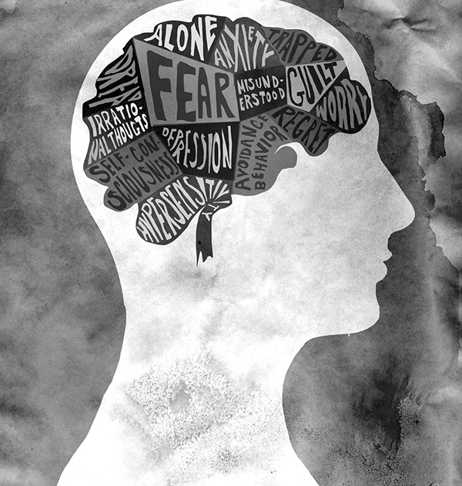

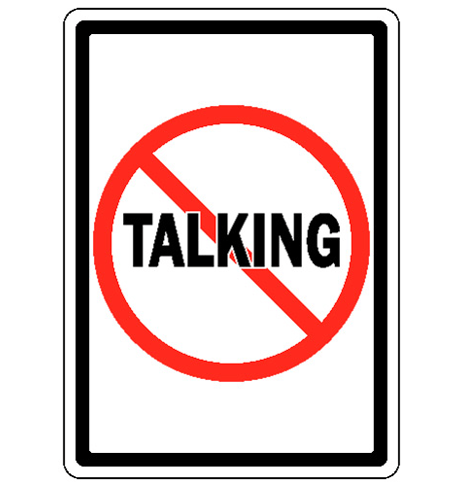

One source of social anxiety can be genetics or a chemical imbalance. Though social anxiety caused by genetics or a chemical imbalance is beyond the scope of this article, it is necessary to mention this potential origin of social anxiety and how it relates to the current economic system. The commodification of healthcare is an example of how the current economic system intensifies problems like social anxiety. With healthcare commodified, the ability of the working and oppressed masses to access affordable and quality healthcare is continually restricted so that the owning class can earn higher and higher profits. This allows problems such as social anxiety to go unaddressed and become worse for a person. If you are able to, please see a qualified medical professional, as they have the tools and resources to best help you if your social anxiety is caused by genetics or a chemical imbalance.
Another cause of social anxiety, and the focus of this article, is our hyper-individualist culture. In our hyper-individualist society, we are instructed from birth to operate in an exceedingly selfish manner in which we have to view everyone else as competitors in the game of life. We are instilled with the notions that we must have a “dog-eat-dog” mentality and a “social darwinist” outlook. This is all made worse by our present economic system’s refusal to provide universal access to life-sustaining resources and services. Moreover, the reverence for the American Dream, with its “pull yourself by the bootstraps” and “hustle” mantra, and the disconnect we experience on social media further reinforce the way in which we connect and interact with each other. In this hyper-individualist culture, we all have become atomized and afflicted with the curse of being unfamiliar with most forms of socialization beyond the transactional. This has caused a profound contradiction between humans as social beings and a culture that is transactional and self-serving. In my own experience before becoming an organizer, I had an “If I needed something” mentality, in which I wouldn’t talk to a person unless I needed something from them, such as a worker at a store; but even then, my social anxiety made these insignificant interactions deathly terrifying for me.
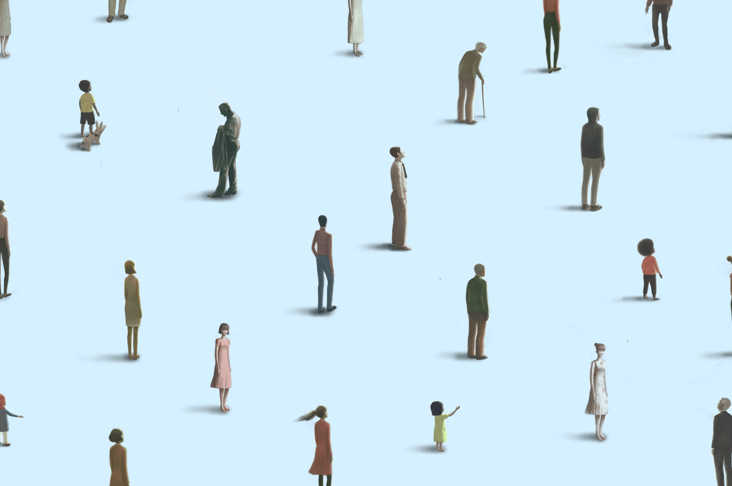

To be an efficient organizer who works toward making a difference in the world, one must confront and challenge their social anxiety. Yes, I understand and know that social anxiety can be crippling. I’ve had plenty of experience with intense worry over what people are thinking, great lengths gone to avoid social interactions, and the potent physical discomfort experienced before and during a social interaction. Trust me, I get it. However, as long as one’s social anxiety is left unchecked, their abilities as an organizer will be affected negatively, obstructing their development as an organizer. An organizer must confront and address their social anxiety. I want to emphasize again that if a person’s social anxiety is caused by genetics or a chemical imbalance, they should seek out a medical professional. If a person’s social anxiety is caused by our hyper-individualist society, then good news: we have the ability to confront and combat that type of social anxiety. Yes, social anxiety weighs heavily on a person’s shoulders and makes being an organizer hard; however, being an organizer necessitates talking to all sorts of people in a variety of awkward and uncomfortable circumstances—it comes with the work. As such, if one really wants to be an organizer, their have to make an effort to combat their social anxiety.
How does one combat social anxiety born from our hyper-individualist culture? Quick answer: we have to force ourselves to talk to people. In my experience, it wasn’t easy. Every time I had a social interaction, as mentioned earlier in this article, I had “freeze up” moments where I was paralyzed by fear over having to talk with someone I didn’t know. These “freeze up” moments were very common, even in a room filled mostly with people I knew, as I found myself avoiding people I didn’t know. However, I pushed through this. My belief in fighting for a world for the working class is what drove me to combat my social anxiety. When I became radicalized and a revolutionary, I was fundamentally changed as a person. No more would I be the “apathetic progressive” who said all the right things but did not fight for my beliefs. If I became an organizer and didn’t address my social anxiety, I was doing a disservice to myself. I couldn’t live like that. From then on, I struggled. Through the baby steps of talking with people, through all the discomfort I experienced on a near daily and weekly basis, I became more sociable over time. I want to highlight that social anxiety doesn’t vanish when you combat it. Instead, social anxiety becomes more manageable. Overall, through practice, social anxiety gets easier to deal with as we become less fearful of subsequent social interactions as we know how to better engage in these interactions.
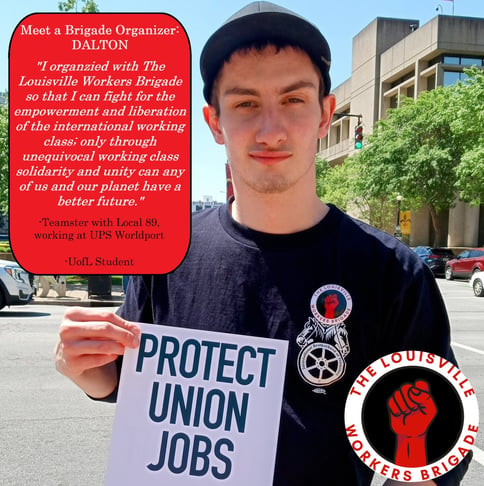

There are plenty of benefits to combating social anxiety. Obviously, we become more comfortable in social situations, but we also become more confident generally. Since we’re not as held back by our social anxieties as we were, we’re more willing to talk to people and take initiative in our organizing work. This all reinforces itself, allowing us to become more confident and develop further as organizers. Additionally, by tackling our social anxiety, we acquire new friends, mentors, and hobbies, all of which enrich our lives. This enrichment means more than just having a fuller life; it means having a circle of support that aids in our development as people and that we can rely on to keep our spirits up in the face of the soul-crushing reality of our present economic system. With a system built on isolation and division, having circles of support is critical for all people, especially organizers who are on the front lines leading the struggle for change. Had I not met people like my fellow organizer with the Brigade, Benjamin, whose mentorship and friendship I greatly value, I would have been lost in some respects and my skills as an organizer would be all the less for it.
Social anxiety is a barrier for many people to be organizers. Whether through causing it or intensifying it, our present economic system has made social anxiety a crippling condition for many would-be and current organizers. Again, if social anxiety is caused by genetics or a chemical imbalance, I strongly recommend seeking out a medical professional. For those who fear that they have no hope to challenge their social anxiety caused by our hyper-individualist society, it isn’t hopeless and you’re not alone. There are thousands of organizers, like me, who struggle with this form of social anxiety. We know what it’s like to deal with this and can provide guidance to help make your struggle that much more bearable. The struggle won’t be easy, but you don’t have to stand in front of a large crowd and give a speech—you just have to start with baby steps to build that confidence. It’s about being conscious and intentional with this work. The friends and mentors you make along the way can further aid you in this process, meaning you’re never by yourself when facing this issue. By fighting our social anxiety, we become better people and organizers, gaining the power to aid in building a world for working people where the poison of hyper-individualism will be banished and social anxieties, no matter the cause, can be addressed in a humane and dignified way.
